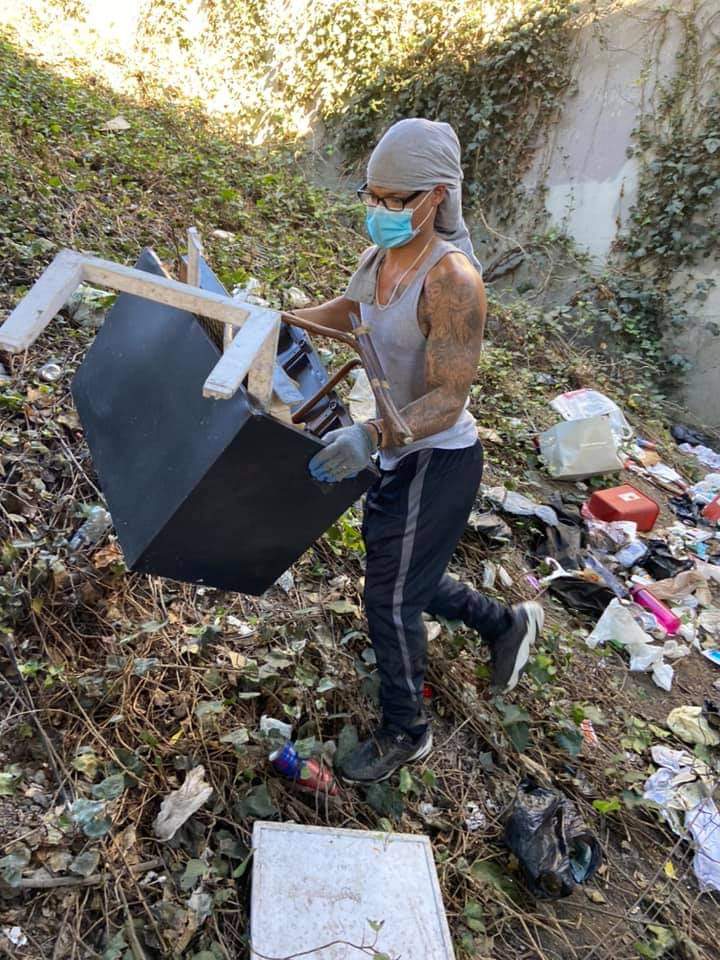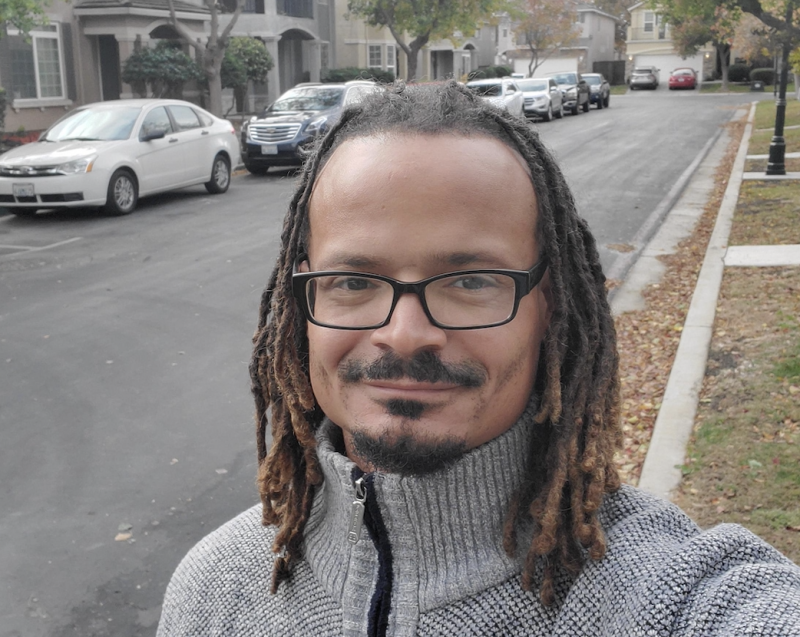Vincent-Ray Williams III is the Operations Coordinator at Oakland’s LGBTQ Community Center. Through this position Vincent has a hand in developing the Center’s Glenn Burke Wellness Clinic.
The clinic, which is named after the Oakland A’s player who was discriminated against for being the first openly gay major league player, is set to open early next year. Vincent says the clinic will focus on HIV/ AIDS testing and prevention.
Vincent, who was born HIV positive, says dispelling negative notions of people living with the virus is the work he finds most purposeful.

On top of the work he does at the center, Vincent also organizes community cleanups in Oakland.
This week on Rightnowish, we discuss all of the work Vincent does and how his life story aligns with the man who invented the high five.
Below are lightly edited excerpts of my conversation with Vincent-Ray Williams III.
VINCENT: Ya know, I’m a pansexual man and I never really felt like I had a place where I fit in… My whole life I always had this view of the LGBTQ community that was negative, because I had a negative view of myself.
VINCENT: What ended up happening for me is I came here – the Oakland LGBTQ Center – for a support group. I was apprehensive to come here because other places that I’ve been, I didn’t feel like I belonged for a few different reasons… because it was predominantly white. I need to be able to walk in and see a Black or brown person because I’m Black and I’m Puerto Rican. But also, I’ve always been one of those kinds of people where if you haven’t been anywhere but you’re trying to advise me on how I should approach something then you’re misinforming me because tried and true solution come through people that have actually been through some shit, that have tried some shit, that I’ve found out what shit works.That’s how I feel about it. And that’s exactly what the Oakland LGBTQ Community Center is.
PEN: Why name it after Glenn Burke, who was Glenn Burke?
VINCENT: Glenn Burke was a Black man in Major League Baseball, played for the A’s. The first out gay Black man in MLB. He created the high five. He found out he was HIV positive. They blackballed him. This is a Black man who had found the courage to be comfortable in his own skin and not care what anyone else thought about it while still remaining professional and inspiring so many other people. And what better than to name the clinic after an Oakland native who made so many sacrifices just to let people know that it was OK to be who they are than to name it after Glen Burke.
PEN: How does Glenn Burke’s story impact you personally?
VINCENT: You know part of Glenn Burke’s story was that without a job he found himself on the streets of San Francisco in the Castro selling himself. I come from a long path of substance abuse and drug addiction, you know. And at one point I found myself in a position where I didn’t know what else to do to take care of myself than to sell myself on the street. I can definitely relate on an emotional level with his story and I’m obsessed with everything baseball. I played in high school and I played in college a little bit so that story hits close to home with me.
PEN: So many parallels. At what point did you find out that you were HIV positive?
VINCENT: I was 13 years old, I was in a group home — probably like my 80th group home I had ever been at this point — and I remember that a social worker sat me down and she said, ‘hey, we need to talk to you.’ And I said, ‘yeah what’s up?’ And she said, ‘your biological father, he passed away.’ And I’m like, ‘oh, no worries. I don’t care. Whatever. I never met him.’ She said, ‘well, we want to let you know that he died of HIV or AIDS.’ I was like, ‘oh, that sucks.’ And she was like, ‘yeah well, we also need to tell you, because you’re old enough to understand that all those medications that you take, they’re also for HIV.’
VINCENT: You know that broke my heart. I didn’t know. I just knew that I had to take these medications every day. It was explained to me that I had been born with HIV. Finding out about it at 13 was really a turning point for me emotionally, because I didn’t know that it wasn’t a death sentence. I knew the stigma behind it. I was like, oh, man, if you got HIV or AIDS, you gonna die. You gonna give it to people. You’re never going to be happy. Nobody’s ever going to love you. And so I found myself in a darker hole…And it’s been a process, I mean, change happens over years and sometimes, you know, [laughs] a whole lifetime, but it’s definitely been a process.
PEN: Man, much respect to that, I definitely know that change isn’t a light switch. So, yeah, I fully understand.
PEN: How would you advise other people to do away with that stigma? How do you, yeah how do you even approach someone who stereotypes people living with HIV and AIDS?
VINCENT: … It’s about education. I’ve had occasion where people would ask me, hey, Vince, do I need to get some more forks and spoons specifically for you? So when you come here, you can eat. I can look at that negatively and I can be like, oh, they’re trying to put me in a box. But see, that’s where you get a kind of foot in to start educating. Well, hey, you know what? Like, that’s not how transmission works.

Rightnowish is an arts and culture podcast produced at KQED. Listen to it wherever you get your podcasts or click the play button at the top of this page and subscribe to the show on NPR One, Spotify, Apple Podcasts, TuneIn, Stitcher or wherever you get your podcasts.


